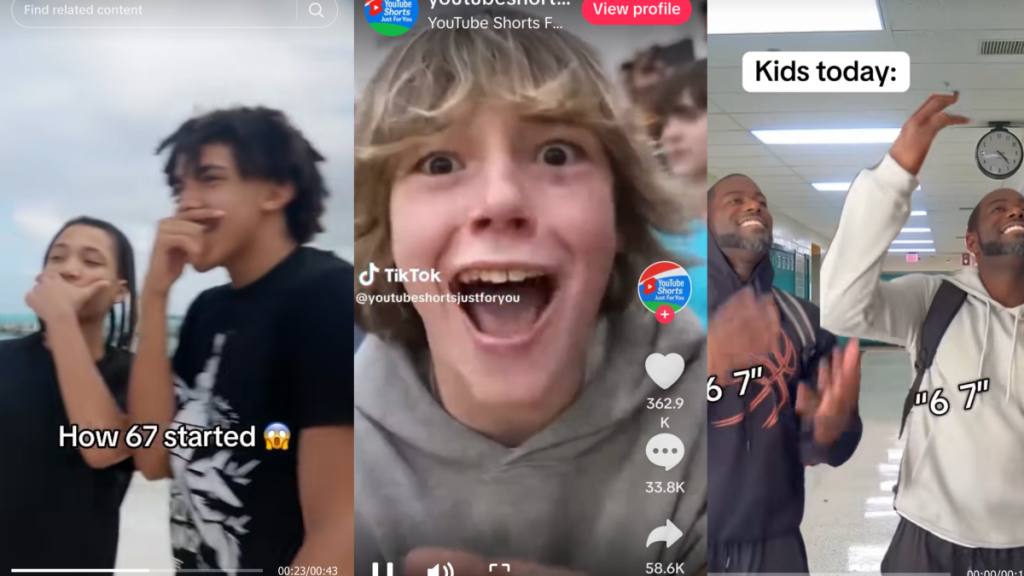Dictionary.com has announced “67” as its Word of the Year for 2025, sparking debate about the evolution of language. The term, also referred to as “six-seven” or “6-7”, originated on TikTok as a nonsensical phrase often accompanied by a hand gesture. It has since become a viral sensation among teenagers, with some using it as a social signal or form of expression.
According to Steve Johnson, PhD, director of lexicography for the Dictionary Media Group at IXL Learning, “six-seven” functions as an interjection, conveying a feeling or energy rather than a specific meaning. This designation marks a departure from traditional words, as “six-seven” is essentially a numerical phrase without inherent significance.
The selection of “six-seven” as Word of the Year has raised questions about the criteria used to determine this annual award. Some argue that the term’s viral nature and cultural impact warrant its recognition, while others contend that it lacks linguistic substance and meaningfulness. In recent years, dictionaries have increasingly acknowledged internet slang and memes, reflecting the dynamic nature of language.
The choice of “six-seven” follows Oxford’s 2024 recognition of “brain rot” as a notable term, highlighting the influence of online culture on language. As language continues to evolve, dictionaries and linguistic institutions face the challenge of balancing traditional definitions with emerging expressions and memes.
The significance of “six-seven” as Word of the Year lies in its representation of the shifting landscape of language and communication. As technology and social media shape the way people interact and express themselves, the boundaries between words, phrases, and gestures become increasingly blurred. The recognition of “six-seven” serves as a reminder of the complexities and nuances of language in the digital age.
